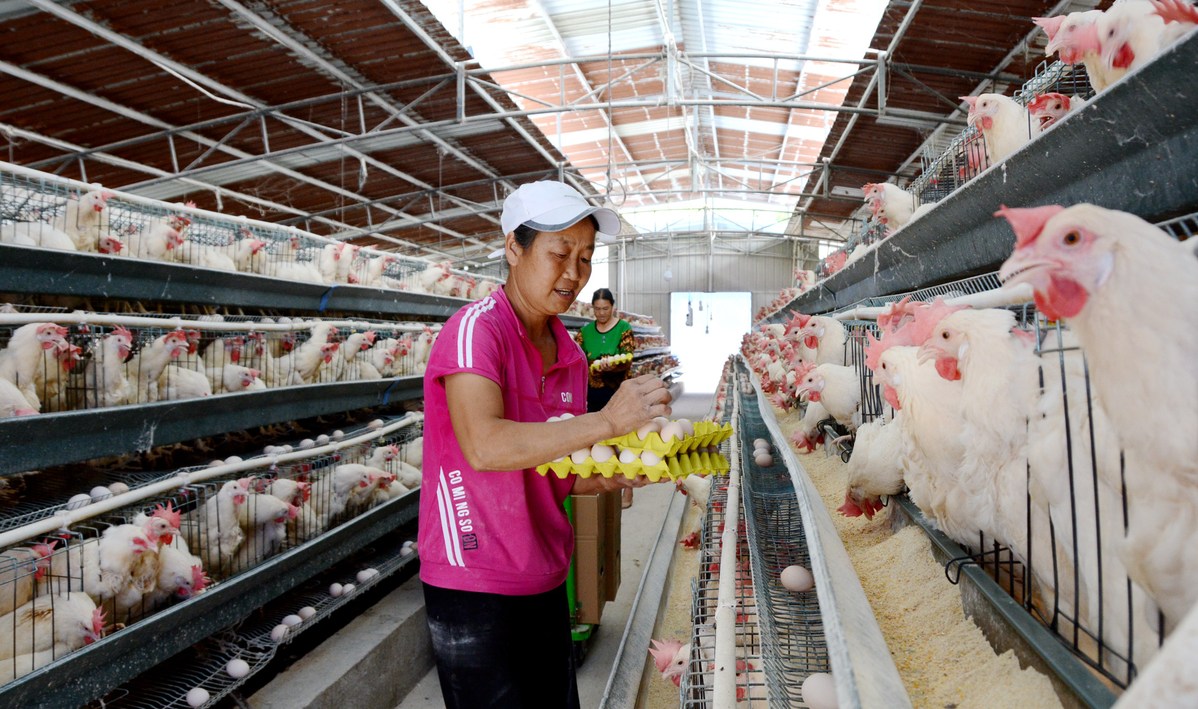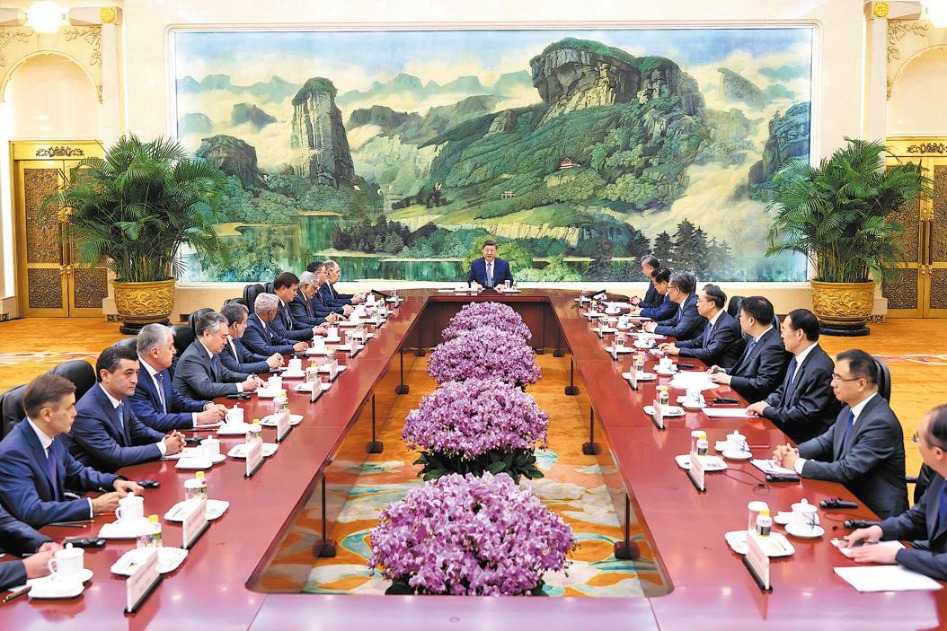Villagers prove harsh environment no impediment to transforming lives
Farmers turn mountain slopes into paddy terraces in a fragile zone in Guizhou province


Mounting pressure
On the other hand, a large human population in the karst areas of Guizhou was putting pressure on the province's ecology.
As a result, Guizhou had long been one of the poorest provinces in the country.
Lengdong, with 505 households (1,962 people), is located in one of the karst areas. People from the village used to fetch water from caves that were 4 kilometers from the village. The water they used to wash their face was reused to wash their feet. It was again used to cook fodder for pigs.
Despite the poor soil cover, villagers managed to grow corn on the mountain slopes.
In 1976, each villager had less than 100 kg of grain. Their per capita income was less than 600 yuan in 2000.
In the 1980s and 1990s, the villagers moved to other places where they could grow grains to fill their stomachs. The local people felt the impoverished village could change for the better "if only the stones flowered".
All villages in the region, including Lengdong, sit on stone-covered mountains, where only bushes grow.
With young women marrying men outside of their village, some villages were full of poor bachelors whom no women wanted to wed.
At a conference held in 2010 to highlight the plight of Lengdong farmers who worked hard to improve their living conditions, Liao Fei, deputy Party head of Qianxinan Buyei and Miao autonomous prefecture, said: "It is possible to find ways to control rocky desertification (a process of land degradation characterized by soil erosion and bedrock exposure) when we are aware of what plants are suitable for the karst areas."
Honeysuckle and Dendrobium officinale, an orchid plant, were chosen to be grown in Lengdong and other villages in the karst areas, helping villagers to improve their sources of income.
It was found that honeysuckle grew well in these areas. Since the shrub has well-developed roots, it also helps conserve water, say experts.
According to some experiments conducted in Dewo, a town in the prefecture, one honeysuckle plant can conserve up to 200 liters of water. It also has branches and leaves that protect karst slopes against erosion.
Simple techniques and management are needed for its cultivation. While it is a low-cost species, it also has high value as one of the most important ingredients in the traditional Chinese medicine.
In 2003, Lengdong started growing honeysuckle on an area of about 133.3 hectares. In 2009, the villagers built factories to process the honeysuckle flowers, setting aside more land to grow honeysuckle and selling the seedlings to other villages.
The honeysuckle in Lengdong yielded an output that was worth 8.30 million yuan in 2019. The village also has a honeysuckle value chain, selling more value-added products.
A cooperative and some companies buy the honeysuckles that the farmers grow and sell them across China and in Southeast Asia.
In 2019, Shoucao Group, a Chinese company based in Xingyi, a county-level city administered by the prefecture, invested 3 million yuan in a 20-hectare garden to grow Dendrobium officinale, which is used as an ingredient in TCM.
People from the poverty-stricken families in the village were employed by the company to work in the garden. The company also ran a cooperative that trained villagers on how to grow Dendrobium officinale.
Lengdong was lifted out of poverty in 2019. Now, the villagers have a per capita annual income of more than 10,000 yuan from livestock breeding.
Guizhou has been one of China's main battlefields in poverty alleviation. In 2015, the province had a poverty-stricken population of 6.23 million, the highest among all provinces, representing 8.9 percent of the total population.
It had a poverty headcount ratio of 18 percent, higher than the national average by 10.8 percent.
Guizhou's poverty alleviation efforts are a fulfillment of China's goal of building a society that is moderately prosperous in all respects.
President Xi Jinping, determined to alleviate poverty in Guizhou, pointed out at a symposium with local Party leaders in 2015 that the success of poverty alleviation programs depended on whether targeted assistance can be provided to beneficiaries.
During the 19th National Congress of the Communist Party of China in October 2017, Xi joined a panel discussion with a delegation from Guizhou and directed officials from the province to stick to economic development and ecological protection to create a better future for the colorful Guizhou so that people are rich and ecosystems are beautiful.























